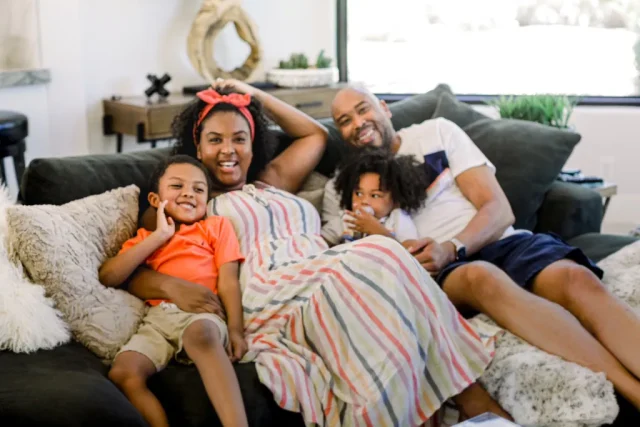For families around the world, weekend screen time remains a cherished ritual—but one that rarely unfolds as planned. Children, especially those under ten, often drift off mid-film, leaving parents to decide whether to carry them to bed or quietly watch the final act alone.
Rather than resist this reality, a growing number of caregivers are redefining what cinematic family time can be. Instead of aiming for full-length viewings, they’re embracing shorter, intentional moments: a shared scene, a calming animation, or a nostalgic clip passed from generation to generation.
These cozy movie night ideas aren’t about completing a film—they’re about connection, comfort, and creating small traditions that endure.
Why Timing Matters: Aligning Screen Time with Natural Rhythms
Research in developmental psychology suggests that young children have limited attention spans—typically 2–5 minutes per year of age—and are most receptive to storytelling during calm, low-stimulation periods.
Evening hours, particularly after dinner, often coincide with rising melatonin levels in children, making sustained focus unlikely. A more effective approach is to schedule screen time earlier in the day, such as:
- Saturday mornings, following breakfast
- Post-lunch downtime, after physical activity
- Pre-bed wind-down, limited to 15–20 minutes of gentle content
This shift—from “movie night” to “movie time”—respects biological rhythms while preserving emotional bonding.
Creating the Atmosphere: Ritual Over Runtime
The magic of family viewing lies not in duration, but in atmosphere. Simple sensory cues can elevate even brief screen time into a meaningful ritual:
- Lay out soft blankets and beloved stuffed animals
- Serve warm drinks in child-safe mugs (e.g., caffeine-free herbal tea, warm milk)
- Dim overhead lights; use fairy lights or lanterns for ambient glow
- Allow children to select from a pre-approved shortlist
No projector? No problem. Even a tablet placed on a stand, with everyone gathered close, fosters intimacy.
Curated Selections: Films and Shorts That Work Globally
The following films and animations have been selected for their universal themes—kindness, wonder, resilience, belonging—and cross-cultural resonance. They include both legacy titles and contemporary works recognized at international festivals such as Annecy, Berlinale, and the Academy Awards.
All are available on major streaming platforms (Netflix, Disney+, Apple TV+, or public domain archives), ensuring accessibility across regions.
Short-Form Gems (Under 30 Minutes)
Ideal for winding down or bridging transitions:
| Kitbull | 2019 | 9 min | A wordless story of friendship between a stray kitten and a pit bull. Winner of multiple animation awards. |
| Bao | 2018 | 8 min | Pixar’s touching tale of empty-nest syndrome, inspired by Chinese-Canadian culture. Academy Award winner. |
| The Snowman | 1982 | 26 min | British classic featuring the songWalking in the Air. Minimal dialogue, maximal emotion. |
| Bear Story | 2014 | 11 min | Chilean Oscar-winning short about memory, exile, and love. Profound yet child-appropriate. |
Pair two shorts for a 20-minute session. Example: Kitbull + Bao = “Stories of Care.”
Full-Length Films Suitable for Segmented Viewing
These narratives unfold episodically, allowing families to pause and resume without losing coherence.
- My Neighbor Totoro (1988, 86 min) – Studio Ghibli’s ode to childhood curiosity. Each adventure (the bus stop, the tree planting) stands alone. Available in 30+ languages.
- Bluey (2018–present, 7–12 min episodes) – Australian series praised for emotional intelligence. Ideal for daily mini-viewings.
- Winnie the Pooh (2011, 63 min) – Gentle pacing, minimal conflict. Can be viewed in acts: “The Honey Tree,” “Blustery Day.”
- Coraline (2009, 100 min) – Stop-motion masterpiece. Best split over two days due to mild suspense.
Intergenerational Double Features
Combine old and new to spark conversation across ages:
| Belonging | The Red Balloon(1956, France) | Loop(2019, USA) – Pixar short featuring a nonverbal girl |
| Nature & Wonder | Kiki’s Delivery Service(1989, Japan) | Wolfwalkers(2020, Ireland/UK) – Hand-drawn forest magic |
| Underwater Friendship | The Little Mermaid(1989, USA) | Luca(2021, Italy-inspired) – Sea monsters and summer bonds |
| Resilience | E.T. the Extra-Terrestrial(1982, USA) | I Lost My Body(2019, France) – Animated, poetic; best for older children |
Practical Integration: A Sample Weekend Flow
Saturday Morning (9:30 AM)
- Serve seasonal fruit and warm oatmeal
- Watch The Snowman with hot cocoa
- Discuss: “What would your snowman look like?”
Saturday Afternoon (2:00 PM)
- Rainy day? Play the forest sequence from Totoro
- Step outside afterward to search for “forest spirits” in the garden
Saturday Evening (8:00 PM)
- Pajamas on, lights dimmed
- Play the “River” instrumental from Soul (2020) while reading a picture book
- Bedtime by 9 PM
Outcome: Three distinct moments of presence—not perfection.
Seasonal Adaptation: Autumn-Themed Screen Rituals
Families in temperate climates can align content with seasonal changes:
- Play forest scenes from Princess Mononoke (1997) or Bambi (1942)
- On pumpkin-carving day, screen It’s the Great Pumpkin, Charlie Brown (1965) in segments
- Host a “Tea & Toons Hour” with herbal infusions and silent-era animations like Paddle Battle (Miyazaki short)
In tropical or Southern Hemisphere regions, adapt themes to local weather (e.g., “indoor rainy day cinema”).
Expert Insight: Quality Over Quantity
Dr. Elena Márquez, child development specialist at the University of Oslo, notes:
“Emotional bonding during screen time doesn’t depend on length. A five-minute conversation about a character’s choice can be more impactful than passively watching an entire film. The key is co-viewing—with attention, not just proximity.”
Parents are encouraged to pause, ask open-ended questions (“How do you think she felt?”), and validate responses.
Redefining the Ritual
Globally, family life is increasingly paced, fragmented, and digitally saturated. In this context, cozy movie night ideas serve a deeper purpose: they offer structured tenderness—a chance to slow down, touch, and share stories.
By releasing the expectation of completion and embracing brevity, families create space for what truly matters: presence.
Whether it’s a shared laugh at Bluey, a quiet moment during Bao, or a whispered “I love you” after the credits roll early—the memory isn’t in the film. It’s in the snuggle.
Follow us on Instagram.
https://www.instagram.com/businessnewsng?igsh=ZXpweTdjOGF1ZXdu

























